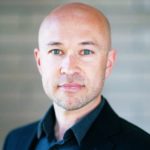
This is a guest post by William Akoto, a postdoctoral researcher jointly appointed at the Sié Chéou-Kang Center for International Security & Diplomacy at the Korbel School of International Studies, University of Denver, and the One Earth Future Foundation. In the fall, he will begin a tenure-track appointment at Fordham University.
Universities are under increasing pressure from politicians, funders and the public to demonstrate the broader social value of their work. In response, many have taken an active role in highlighting the impact of their research, with increased investment in public engagement that showcases the significance of scholarship at universities. These efforts are aimed at policymakers, journalists and activists who can help turn scholarship into policy-relevant action, but also at the public at-large. Such public engagement serves as a powerful reminder of the value of universities to society, especially in light of rising tuition costs and declining public funding for higher education.
There pressures trickle down to academics who work within these universities. Given the rise and relevance of social media, it is increasingly hard for academics to defend having academic knowledge disseminated exclusively within the confines of the academy. Academics are under pressure to reach beyond conferences, journals and their classrooms to reach a broader, more mainstream audience. This pressure is compounded by the increasingly precarious and competitive academic job market. Young academics like myself are routinely preoccupied with devising career paths that extend beyond just teaching and research to incorporate writing online blogs, twitter threads (“tweetorials”), podcasting, consulting and public speaking.
As academics take a more active role in affecting the public discourse and policy outcomes, we bear increasing responsibility for these outcomes. However many academics – myself included – struggle to navigate the murky waters of public and policy engagement in which the pressures of the academy now compel us to swim. Public and policy engagement that seeks to push academic findings to the forefront comes with some troublesome ethical dilemmas.
For instance, research activities and findings that could prove tremendously beneficial to society also often can be catastrophically dangerous if misapplied. For example, research that decodes the genome of the Ebola virus is invaluable for scientists who want to develop an Ebola vaccine, but the same research also greatly facilitates the activities of malevolent actors who may want to weaponize the Ebola virus for warfare purposes.
Awareness of this “dual-use” problem is particularly high in the life sciences where research findings often have clear real-world applications. But social science research can also have dangerous unintended uses. As a scholar of military coups, I am keenly aware of this. One theme of my research work focuses on how incumbents can insulate themselves from coups. Coup events are generally bad for economic growth, national development and democratic outcomes so investigating ways to mitigate them is important. One paper explores how incumbents can manipulate the tools of trade policy to minimize the risk of coups. I demonstrate that one effective way leaders can limit coups is to tilt the composition of their state’s trade towards intra-industry imports and exports. I find that such shifts raise the opportunity cost of coups for consumers and domestic firms, incentivizing them to limit their support for coups or pursue actions that keep coup propensity low.
In a separate paper, my co-authors and I show that higher intra-industry trade also makes incumbents more resilient to sanctions from the international community. Properly applied, these insights could be invaluable for the consolidation of fledgling democracies by limiting coup-induced political instability. However, it could also be a boon for ruthless authoritarians who want to stay in power longer. The pressure to widely disseminate our scholarship in the spirit of public engagement makes such work more accessible and with it the likelihood of its misapplication. Given this, how can I and other academics minimize the possibility of our work being used in unintended ways?
There is no easy answer to this question. But more concerning is that many universities have not yet even begun the process of creating the institutional space where these issues can be raised and discussed. Individual academics confronting these challenges are left to flounder, stumbling their way through decisions about how to navigate these issues. Given the increasing pressure from university administrations for public engagement, it is time they take a more active role in delineating and providing tools to help researchers cope with the inevitable challenges that come up in the process. At present, there is precious little guidance.
This is why projects such as Bridging The Gap (BtG) and the Responsible Engagement Institute (REI) are such welcome initiatives. These programs aim to develop and mentor PhD students, early career and established scholars who seek to pursue policy-relevant research and public engagement around topical issues. The REI is particularly focused on helping academics navigate the moral and ethical issues that come with policy engagement. More such concerted efforts are sorely needed.
The role of universities has always been to create and disseminate knowledge. It is conceptions of how far and wide that knowledge should be disseminated that is changing. Academics already wear many hats – teachers, researchers, mentors, administrators – so adding policy and public engagement to the mix is daunting for many. If universities want engaged scholarship to be the norm rather than the exception for a few determined academics, they need to create incentives and develop structures, support and training that make engaged scholarship a core part of being an academic.
Cullen Hendrix is Professor and Director of the Sié Chéou-Kang Center for International Security and Diplomacy at the Korbel School of International Studies, University of Denver, and Nonresident Senior Fellow at the Peterson Institute for International Economics. His current projects explore conflict and cooperation around natural resources and the ethics of policy engagement by academic researchers.


0 Comments